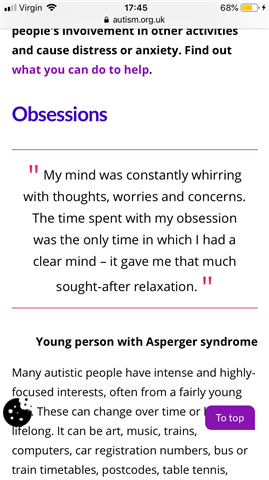Hi everyone,
I'm just wondering if anyone has any advice.
Today has been a difficult day for both me and my partner. The focus was to visit the doctor in hopes of putting on some sort of medication to help with anxiety, but also he's been feeling a lot of empty sad feelings as well and has been feeling extrrmely lost.
The doctors appointment didn't end up going to plan, we were very organised having written a list and were very clear on the plan considering he has been advised medication by his support worker and mental health professionals (he is waiting on therapy we have been waiting a year now). The doctor ended up reducing his antidepressant dosage, saying that it is just the ups and downs of life and our climate and saying he thinks that his dosage was too high and therefore has not been working. (This of course is a plausible option but I did point out that my partner has been on this dosage of medication for years and has never had a problem with it, and bearing in mind this doctor tends to just anything wrong down to whatever meds you are on at the time since both my mum and I have been in this situation with the same doctor).
Having not gone to plan, we came out of the office and my partner went into a silent meltdown the whole walk home, and then we got home and he broke down, done his thing of running to bed and was in a very bad situation. (We can't pinpoint whether it was down to the fact the appointment didn't go to plan, or whether he just really hates the way he is, maybe both). We went through a very difficult time then, with some very awful things said. He really struggles to understand himself, and I know he will get therapy on how to cope later with technniques. He despises himself and it is so incredibly hard to watch.
He says he feels like his mind is separate from his body, like there is someone separate controlling his brain who takes over and says things he doesn't want to. He also says most of the time his brain doesn't work, like someone is taking over and blocking it, he doesn't know what to say, when to say something, he also has constant questions in his head on what to do in every situation. The only example I can remember (I previously posted on having trouble approaching my partner for sex which in comparison doesn't seem like as much of a problem at this point), we've tried sex a few times since that post and we have had to stop because he gets overwhelmed by being hot, he also has questions in his head of what he should do, he doesn't know what to do. we have agreed I will write him a list of things that will help us. Other than that he just really doesn't understand himself guys and its honestly so sad, He is in a constant fight with himself, he detests himself, says he doesn't know what to do and that he wishes he wasn't the way he is.
I've kind of lost track of the point of this post if im honest, my head Is just so overwhelmed. I think I need help on getting him to understand himself, excepting himself, learning its ok to be himself and he can get through it. coping mechanisms, some sort of home treatment until I can get him to see someone, the stress is just overwhelming him because he isn't able to know why it all happens and what happens to him is his so called normal (What Is normal anyway, i just want to say that because there isn't such a thing but its the only way I can explain it). Also is this classed as sensory overload? Thanks, Beth




